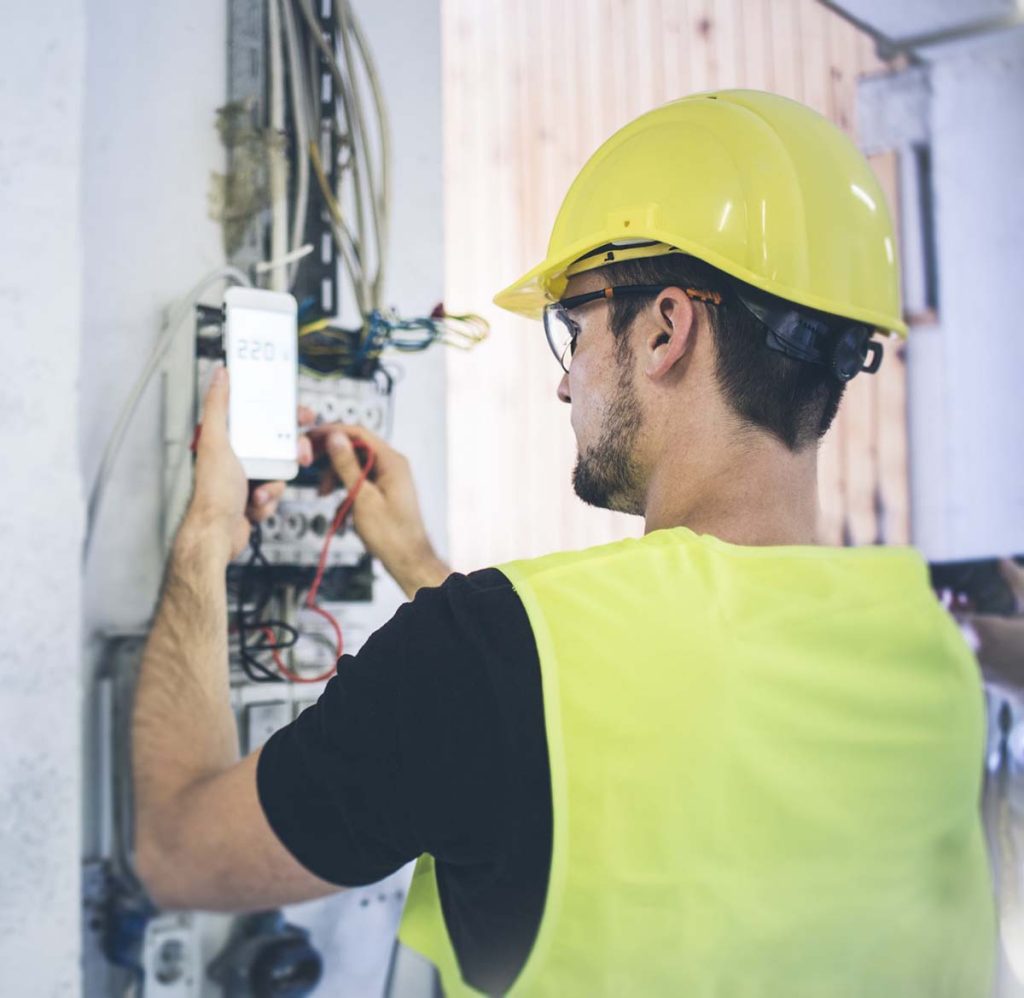With more than 45 years of experience, we help New York construction workers and their families recover compensation for electrocution accidents caused by the safety failures or negligence of those in charge of a construction worksite.
Working on a construction site has many inherent dangers. However, the risk of electrocution is listed among OSHA’s “Fatal Four” as a leading cause of fatalities in the workplace. The risk is reduced when contractors and supervisors take the necessary safety precautions.
If you or your loved one has suffered an electrocution accident, contact Apicella & Schlesinger Attorneys at Law. With more than 45 years of experience, we help construction workers and their families recover compensation for electrocution accidents caused by the safety failures or negligence of those in charge of a construction worksite.

Types of Electrocution Hazards
Electricians may come to mind when we think of workers at a greater risk of electrocution injuries. It’s true that they are constantly exposed to the danger of electricity. But other construction jobs require working around electrical wires, and these workers are at risk too.
They face numerous electrical hazards on the job. Electrical wiring may be incorrectly designed or manufactured, negligently installed, or poorly maintained. Some of the most common electrocution hazards include:
- Exposed wiring
- Hidden or unmarked electrical wires
- Uninsulated or ungrounded wiring
- Electrical equipment used near flammable gas, dust, vapor, or liquids
- Exposed power cords that get cut, pulled out of the socket or tripped over
- Overloaded extension cords
- Safeguards not in place
- Workers not adequately trained to avoid electrocution injuries
- Excavation equipment and workers coming into contact with underground power lines
- Falls from scaffolds or heights after suffering an electric shock
Construction workers fall victim to electrocution accidents more often than utility workers and power line installers because they are often not given proper protective equipment and safety gear when working around electricity. In addition, they are not generally trained and supervised regarding electrical hazards.
What to Do After a Construction Site Accident
One of the most common questions asked is what to do after a construction site injury. Regardless of the damage, you’ve suffered, always follow these guidelines after a construction site accident:
- Seek immediate medical care – Seek care as quickly as possible. Visit an emergency room, urgent care facility, or your primary care physician. The longer you wait to see a doctor, the worse your injuries can become, and the worse your claim will look to the insurance company and judge.
- Report your accident to your employer – Construction companies typically have similar policies regarding reporting an accident. Follow the company policy. You may need to file a written report documenting the accident and your injuries.
- Contact a construction accident attorney – Contact a construction accident lawyer as soon as possible. Your attorney will advise you on the best next steps and the dos and don’ts of navigating a claim against your employer.
- Follow your doctor’s orders – Not following the doctor’s instructions is one of the biggest mistakes individuals make after getting injured. Not listening to the doctor can make your injuries worse and damage your personal injury claim. Therefore, follow all the instructions, such as diagnostic testing and imaging, additional care and follow-up appointments, and suggested time off work.
- Save all documentation – Medical reports, bills, receipts, and all written correspondence – make copies and save all of it!
If you have any questions regarding your accident or personal injury claim, contact Apicella & Schlesinger Attorneys at Law. For more than 45 years, personal injury lawyers at our offices in Washington Heights have been representing victims in all types of accidents throughout New York City, the Bronx, Brooklyn, Queens, Staten Island, and Nassau and Suffolk Counties. You will receive caring, personal attention and reliable information every step.

1 thought on “Electrocution Hazards – What to Do After a Construction Site Accident”